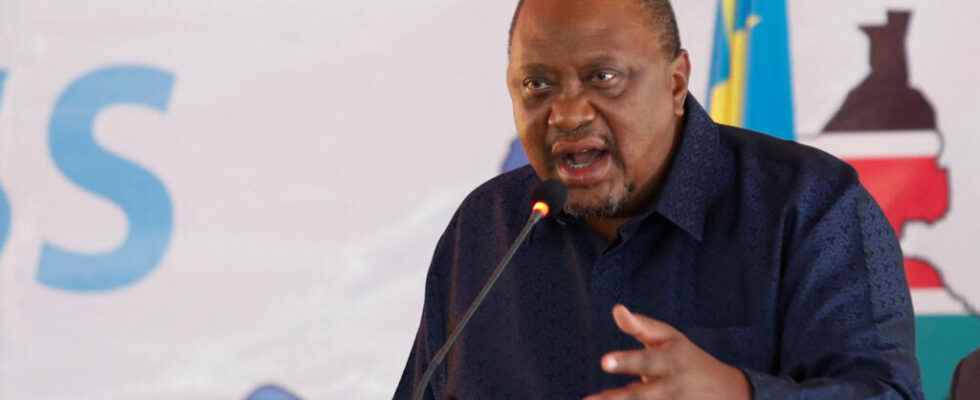The inter-Congolese dialogue begins its second day of work Thursday, December 1 in the Kenyan capital Nairobi. Over 200 delegates are represented, including more than 50 DRC armed and civil society groups, in addition to facilitation by the East African Community and a delegation from Kinshasa. If the M23 has not been invited, the parties want to bring peace and must discuss in particular the conditions for disarming the groups, or even their amnesty.
Wednesday, November 30 in the afternoon, the armed groups were able to exchange, by province, with East African Community (EAC) Facilitator for DRC Uhuru Kenyatta. Of many topics are on the tablein particular the issue of amnesty for the rebels: this is a request from certain militias, while several civil society actors are pleading for transitional justice.
Serge Tshibangu, the Congolese president’s proxy for the Nairobi process, clarified Kinshasa’s position during a session open to the press on Wednesday morning: amnesty will not be automatic with the laying down of arms, he said. told our correspondent in Nairobi, Albane Thirouard.
” There will be no amnesty for crimes committed against our own brothers and sistershe said. Amnesty means that we would have come to Nairobi to use this forum as a purgatory, where all the sins committed, all the atrocities committed vis-à-vis our own brothers and our own sisters will be erased with a magic stick. , and then afterwards when we return to Congo, everything is normal. We will have to plan, we will have to know, transitional justice will also work. »
Serge Tshibangu later clarified that justice would not only pass through the courts… a truth and reconciliation process should be put in place to allow the reintegration of certain rebels into society. The latter are also expected to join the Disarmament, Demobilization and Community Recovery and Stabilization Program (PDDRCS).
► Also read and listen: DRC: in Uvira, how to reintegrate these militiamen who lay down their arms? [4/5]
The disarmament and reintegration program at an impasse
According to the PDDRCS, set up by the Congolese government to support the peace process, the M23 had until November 30, according to the decisions of the Luanda Mini-Summit, to disarm and confine. This under the control of the Congolese army and the regional force of the EAC, in collaboration with Monusco. However, the movement, described by Kinshasa as ” terrorist group » keeps its conquered positionswhile the PDDRCS is struggling to be put in place.
In August 2021, President Félix Tshisekedi named Emmanuel Tommy Tambwe to the post of national coordinator of the new PDDRCS. A year later, the field work of this program supposed to be one of the pillars of the government’s strategy in the fight against armed groups and the peace process in the DRC has fallen behind schedule, reports our correspondent in Kinshasa, Patient Ligodi.
The PDDRCS had planned to demobilize at least 20,000 combatants in 2022. The objective was not achieved, for lack of money: it was only in November that the first tranche of the budgeted $47 million was released.
For next year, the government wants to accelerate. The budget has almost been doubled with an emphasis on disarmament and reintegration. An envelope of 84 million dollars is programmed. And it will urgently be necessary to develop the sites that have been identified to accommodate DDR candidates.
Also, the government says it also expects the main partners to honor their commitments. Among these donors, there is the World Bank, which is working with the Congolese authorities on a project worth around 250 million dollars. Which project will focus on aspects related to stabilization with priority schools or infrastructure.
Paul Kagame accuses Kinshasa of accusing Kigali by ” practicality »
In Kigali, meanwhile, President Paul Kagame gave a long speech to Parliament on Wednesday in which he returned to the situation in eastern DRC. ” It has become practical to lay all the problems on Rwanda’s shoulders “, he denounces, while Kinshasa accuses the Rwandan authorities of supporting the rebel group of M23. In his speech, the Head of State assures that he has no interest in destabilizing the neighboring country.
For Rwandan President Paul Kagame, Kinshasa accuses Kigali by “practicality”
► To read also: DRC: a former member of the rebel group M23 mounts a movement to fight it
